Eating Habits and Personal Agency: Navigating the Landscape
As we navigate through the multi-faceted landscape of dietary habits, stepping back to examine our mindset towards food can be profoundly enlightening.

Most of us give little thought to the factors influencing our food-related decisions. Be it a tendency to reach for comfort food during stressful periods or opting for the easiest (often less healthy) option when time is scarce, our choices are rarely random. They're informed by a complex interplay of internal and external cues, lifestyle considerations, and personal beliefs that define our dietary landscape. Welcome to 'Eating Habits and the Law of Personal Agency: Navigating the Landscape,' a thought-provoking exploration of how our mindset shapes our eating habits. Dive in as we unpack the power of thinking in your food choices, illustrate how self-imposed restrictions and freedom work hand-in-hand, and draw parallels between dietary discretion and financial decision-making.
Connection between Mindset and Dietary Choices
The mind plays a bigger role in eating than you would initially think. The foods we choose to eat and our general attitudes towards nutrition aren't random, but constructs of our mindset. Often, we cultivate our dietary habits based on the information we absorb, the patterns we recognize, and the thoughts we foster.
The role of mindfulness in making food choices
Being mindful means being fully engaged with whatever we’re doing at a given moment. When applied to eating, it involves breaking down your oldest habits, examining and confronting your responses to food. Our emotional states are closely linked with our dietary choices, and understanding this association is essential in making healthier food choices.
Understanding Restriction and Freedom
The debate between restriction and freedom in dietary habits is as old as dieting itself. On one end is the idea of imposing restrictions on certain foods, believing that self-control is key to maintaining a healthy diet. On the other end is the belief in the freedom of choice – trusting your body to intuitively understand what it needs. The reality lies in our ability to balance between these two extremes, using their strengths to guide our choices while understanding their potential pitfalls.
The Concept of Personal Agency in Dietary Choices
Personal agency plays an integral role in dictating our dietary habits. This concept means taking responsibility for our actions and understanding that our choices directly impact our health and wellbeing.
The power of personal agency
In the realm of diet, personal agency pushes strong feelings of empowerment, leading to better, healthier choices. When people feel in control of their dietary decisions, they're less likely to feel deprived or make poor nutritional choices.
Balancing between self-imposed restrictions and freedom
Striking the right balance is essential for sustainable, healthy eating habits. It involves acknowledging the power of personal agency in making dietary decisions while respecting the principle of personal freedom. By being aware of the consequences of our choices and understanding the possible restrictions we place upon ourselves, we can navigate our dietary landscape more effectively.
The Impact of Lifestyle on Eating Habits
If we consider our diets as a reflection of our lifestyle, we can begin to notice how elements such as exercise routine, work demands, and hobbies influence what we consume. These factors play a significant role in shaping dietary patterns, providing another essential context in which to understand food choices.
Exploring the role of fitness and other elements in dietary habits
For those who engage in high-intensity training like crossfit, nutrition becomes a fundamental part of performance and recovery. Higher protein needs and careful timing of carbohydrate intake speak to the intimate connection between fitness and food choices. Likewise, the demanding nature of professions like coding, which require sustained concentration and often involve erratic work-hours, can greatly impact eating habits.
Connecting nutrition with quality of life
What we consume largely decides how we feel, perform and look, making the diet a powerful tool for enhancing the quality of life. By adopting a mindful approach to eating, individuals can optimize both their physical health and mental well-being. A balanced diet can help maintain a healthy body weight, boost brain function, and provide the rightful energy to manage daily tasks effectively and efficiently.
The Intersection of Diet and Finance
Believe it or not, the principles of eating and spending share some noteworthy similarities, and understanding these can lead to improvements in both areas.
The Parallel between Food Choices and Financial Decisions
Have you ever noticed the definitive parallels in the decision-making tactics of eating and financial management? Like choosing between a fancy restaurant or home-cooked food, we often have to decide between splurging on a luxury item or saving money. Just as we seek balance in our diets, we need it in our financial lives, weighing immediate gratification against long-term gains.
The Impact of Mindful Eating on Personal Finances
Consider how being mindful about food choice not only contributes to health but also aids in financial stability. Planning meals, reducing wastage, and making thoughtful grocery store choices can all lead to significant savings. Therefore, benefits of conscious eating extend well beyond physical well-being, fostering greater financial control too.
Tools for Improving Mindful Eating
Living in a digital age means that we have numerous resources at our fingertips, from apps that track our nutritional intake to e-books that can teach us about the connections between food and mindset. With the right tools, we can reformulate our relationship with food, making mindful eating more intuitive and sustainable.
Introduction to useful tools for automating dietary decisions
There is a myriad of tools designed to assist with mindful eating. Apps like 'MyFitnessPal,' offer food journaling capabilities and a database of nutritional information. 'Headspace,' whilst renowned for its meditation resources, also has a section devoted to mindful eating. The goal here is not to follow everything literally, but allowing these tools to guide you to discover your own unique rhythm of mindful eating.
How software can play a role in maintaining mindful eating habits
Software can revolutionize mindful eating, not only by providing tools for tracking nutrition but also by providing platforms for learning and community support. Programming a weekly meal planner or auto-generating a shopping list based on preferred recipes can take the hassle out of planning, leaving more room for conscious engagement during the act of eating. Moreover, online communities can provide moral support and an exchange of ideas and experiences to further enhance your journey towards mindful eating.
I use several pieces of software to keep me on track with mindful eating:
Conclusion
As we navigate through the multi-faceted landscape of dietary habits, stepping back to examine our mindset towards food can be profoundly enlightening. The merit of restriction versus freedom in diet, the parallel between food and financial choices, and the impact of personal agency, all intersect to influence our every meal. Understanding and exploiting this complexity posit an exciting opportunity for enhancing our health, wellbeing, and potentially our financial stability.
So, as we draw this exploration to a close, I invite you to embrace mindfulness in your journey towards healthier eating habits. Because ultimately, it's not just about eating right, it’s about creating a well-rounded and genuinely fulfilling life experience.

